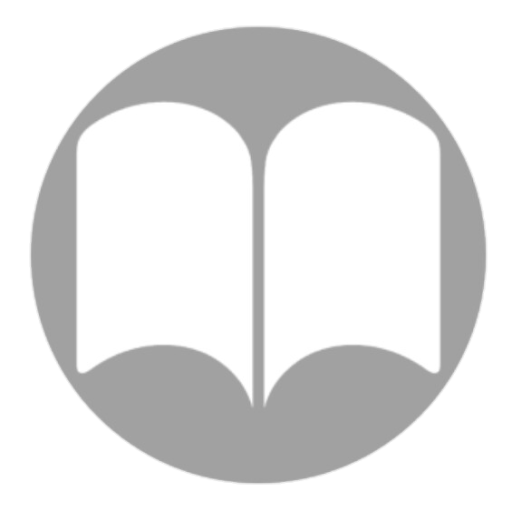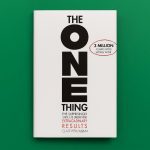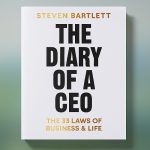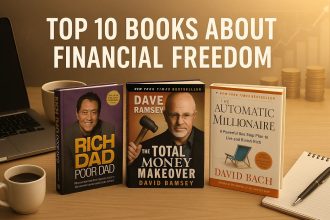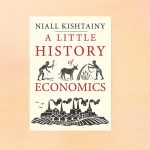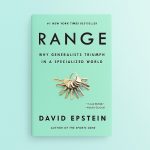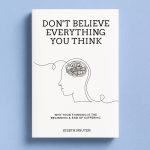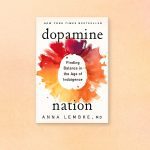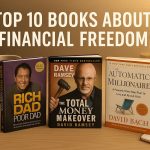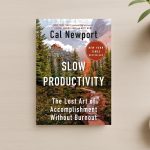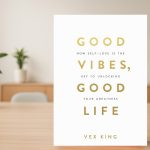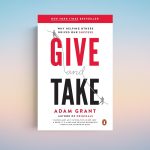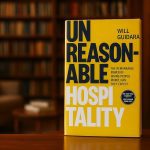Self‑help is one of the most accessible genres for personal growth, offering practical guidance from experts, storytellers, and thinkers. For beginners, certain books provide the perfect blend of approachable style, proven advice, and inspiring perspective. This selection of Top 10 Self-Help Books for Beginners combines perennial bestsellers with recent hit titles featured on both The New York Times and Amazon charts. Topics range from habits and mindset to emotional well‑being and purpose. Whether you’re seeking to improve productivity, boost confidence, or find clarity in life’s challenges, these Top 10 Self-Help Books for Beginners are excellent starting points.
Top 10 Self-Help Books for Beginners
1. Atomic Habits by James Clear
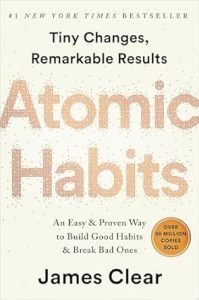
James Clear’s Atomic Habits explains how small, consistent changes produce remarkable results. Using principles from psychology, neuroscience, and personal experience, Clear outlines the “four laws of behavior change” – cues, cravings, responses, and rewards. He emphasizes the power of identity‑based habits, environment design, and tracking progress to make improvements automatic. The book is filled with actionable strategies for building good habits and breaking bad ones, suitable for any life stage. Clear balances science with relatable stories, making complex ideas accessible. By focusing on systems rather than goals, Atomic Habits equips readers with the tools to create lasting, positive transformation.
+ Review of Book Atomic Habits by James Clear
2. The 7 Habits of Highly Effective People by Stephen R. Covey

Covey’s The 7 Habits of Highly Effective People is a classic framework for personal and professional success. Rooted in principles of fairness, integrity, and human dignity, the book guides readers through habits like being proactive, beginning with the end in mind, and seeking mutual benefit. Covey blends timeless wisdom with practical exercises that help readers shift from dependence to independence and interdependence. Emphasizing character over quick fixes, the book encourages proactive living and alignment between values and actions. Its structured, principle‑centered approach remains a foundational self‑help resource, offering beginners a clear roadmap for cultivating effectiveness in all areas of life.
3. Can’t Hurt Me by David Goggins
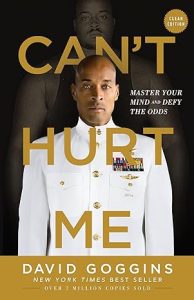
In Can’t Hurt Me, David Goggins recounts his journey from an abusive, poverty‑stricken childhood to becoming a Navy SEAL, ultra‑endurance athlete, and motivational force. Through raw storytelling, Goggins introduces the concept of “callousing the mind” – developing mental resilience through discomfort and discipline. The book combines autobiography with an interactive challenge structure, asking readers to confront self‑imposed limitations. Goggins’s no‑excuses philosophy is intense but empowering, pushing beginners to redefine their potential. The mix of personal struggle and actionable steps resonates with anyone seeking to toughen their mindset, proving that mental transformation can be the catalyst for extraordinary physical and life achievements.
4. The Subtle Art of Not Giving a F*ck by Mark Manson

Mark Manson’s The Subtle Art of Not Giving a F*ck offers a refreshing contrarian take on self‑improvement. Instead of striving for constant positivity, Manson argues for choosing values mindfully and embracing life’s inevitable problems. Through irreverent humor, personal anecdotes, and philosophical insight, he dismantles the illusion of endless happiness. Beginners will find his writing accessible yet thought‑provoking, urging them to prioritize what truly matters. Manson’s message is liberating: limited energy means selective investment of care. By accepting responsibility and redefining success, the book encourages more intentional living. It’s a reality‑check guide packed with wisdom, blunt truths, and practical applications for everyday life.
+ Book Summary of The Subtle Art of Not Giving a F*ck by Mark Manson
5. Daring Greatly by Brené Brown
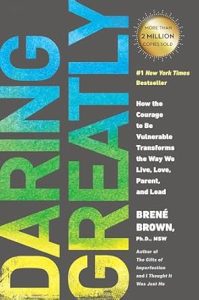
Drawing on over a decade of research, Brené Brown’s Daring Greatly explores vulnerability as the foundation for courage, connection, and creativity. She challenges the myth that vulnerability is weakness, showing instead how it enables authenticity and resilience. Through stories, grounded theory, and actionable advice, Brown encourages readers to step into the arena – engaging fully despite uncertainty or potential failure. Beginners will appreciate her warm, relatable tone paired with evidence‑based insights. The book empowers individuals to drop perfectionism, embrace empathy, and cultivate trust in relationships. By daring greatly, Brown argues, we invite transformation both personally and collectively, leading to richer, more meaningful lives.
6. You Are a Badass by Jen Sincero

Jen Sincero’s You Are a Badass blends self‑help principles with bold humor to motivate readers toward unapologetic self‑belief. Through personal stories, straightforward wisdom, and exercises, Sincero teaches beginners how to identify self‑sabotaging patterns and replace them with empowering habits. The book emphasizes mindset shifts, goal setting, and the importance of aligning with one’s passions. Sincero’s conversational, irreverent style makes her message both inspiring and accessible. By urging readers to take bold action without fear of judgment, she delivers a self‑help guide that feels like a conversation with a candid friend – one determined to push you beyond comfort zones.
7. Feel the Fear and Do It Anyway by Susan Jeffers

Susan Jeffers’s Feel the Fear and Do It Anyway remains a foundational text for turning anxiety into action. She asserts that fear is a natural companion to growth and that confidence comes from doing, not waiting for courage to arrive. Through practical tools and affirmations, Jeffers teaches readers to reframe challenges, expand their comfort zones, and take control of their decisions. Beginners will find her advice direct and encouraging, addressing fear in careers, relationships, and personal goals alike. The book’s simple yet profound strategies continue to empower individuals to step forward despite uncertainty, transforming fear into a driver for progress.
8. Make Your Bed by Admiral William H. McRaven
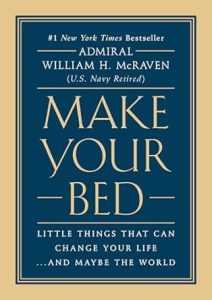
Inspired by his viral commencement speech, Admiral McRaven’s Make Your Bed distills life lessons from Navy SEAL training into everyday habits. Each chapter uses a military anecdote to illustrate principles like completing small tasks, embracing failure, and persevering under pressure. McRaven’s straightforward storytelling and clear structure make the book especially approachable for beginners. The premise is simple yet impactful: small, disciplined actions can create momentum and meaning. By linking modest daily tasks, such as making the bed, to broader successes, McRaven offers a concise, motivating manifesto for building resilience, discipline, and confidence one habit at a time.
9. Think Like a Monk by Jay Shetty

Jay Shetty’s Think Like a Monk adapts timeless monk principles for modern life. Drawing on his years living in an ashram, Shetty explains how to overcome negativity, find purpose, and live intentionally. Beginners benefit from his blend of practical exercises, meditations, and relatable memoir elements. The book covers letting go of ego, prioritizing service, and managing the mind’s distractions. Shetty’s accessible style demystifies spiritual concepts, making them actionable in daily routines. Through personal stories and structured advice, he helps readers cultivate peace, focus, and meaning, proving ancient wisdom can harmonize with contemporary challenges in the pursuit of a fulfilling life.
10. The Power of Now by Eckhart Tolle
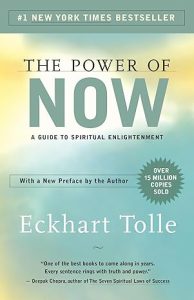
Eckhart Tolle’s The Power of Now is a spiritual self‑help guide centered on mindfulness and living fully in the present. Tolle argues that most human suffering stems from over‑identification with the mind and dwelling on past or future. For beginners, his accessible Q&A approach breaks down abstract ideas into manageable insights. The book teaches readers to observe thoughts without attachment, anchoring themselves in the now. Blending personal awakening experiences with universal teachings, Tolle provides practical exercises to quiet mental chatter and cultivate presence. Its simple, transformative message – peace is found in the present moment – continues to inspire worldwide readership.
+ Book Summary of The Power of Now by Eckhart Tolle
Conclusion: Top 10 Self-Help Books for Beginners
Self‑help for beginners doesn’t need to be overwhelming – the right books provide simple, practical tools while inspiring deeper growth. From the science‑driven strategies of Atomic Habits to the spiritual guidance of The Power of Now, this collection of Top 10 Self-Help Books for Beginners blends contemporary bestsellers with enduring classics. Each offers a unique first step, whether toward better habits, bolder confidence, or inner peace. Combining relatable stories with actionable advice, these works prove that transformation begins with small, intentional actions. For anyone new to the genre, these titles offer both immediate value and a foundation for continued personal development.
Engage with Us: What Are Your Favorite Books?
